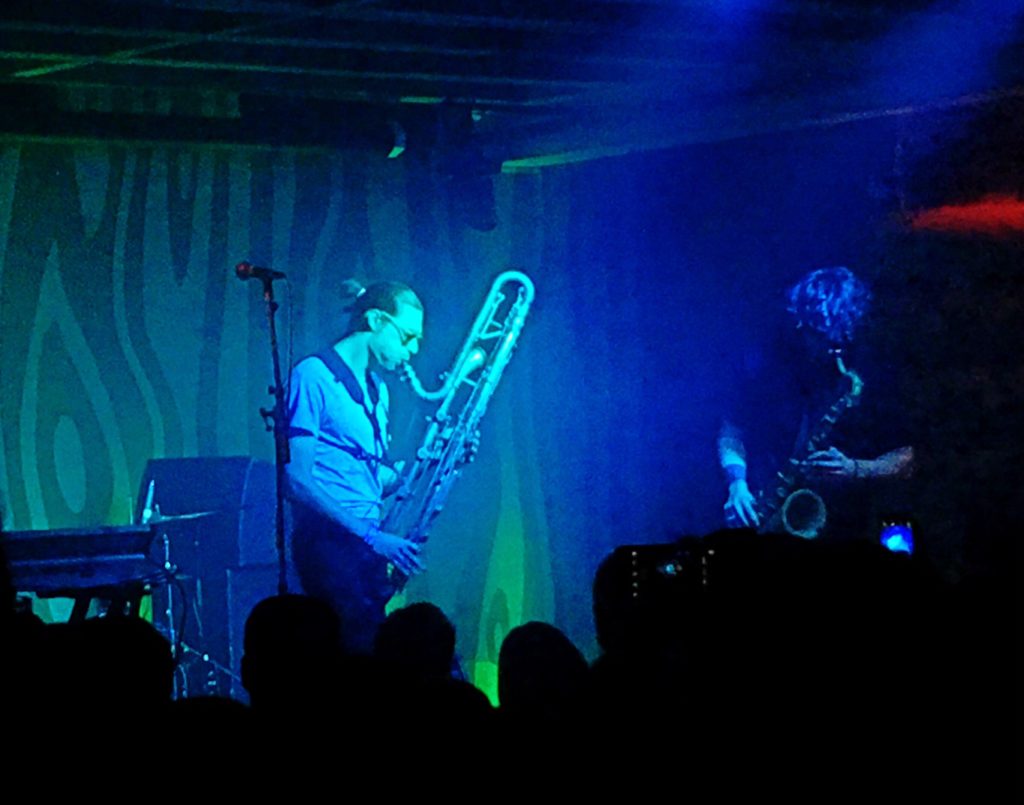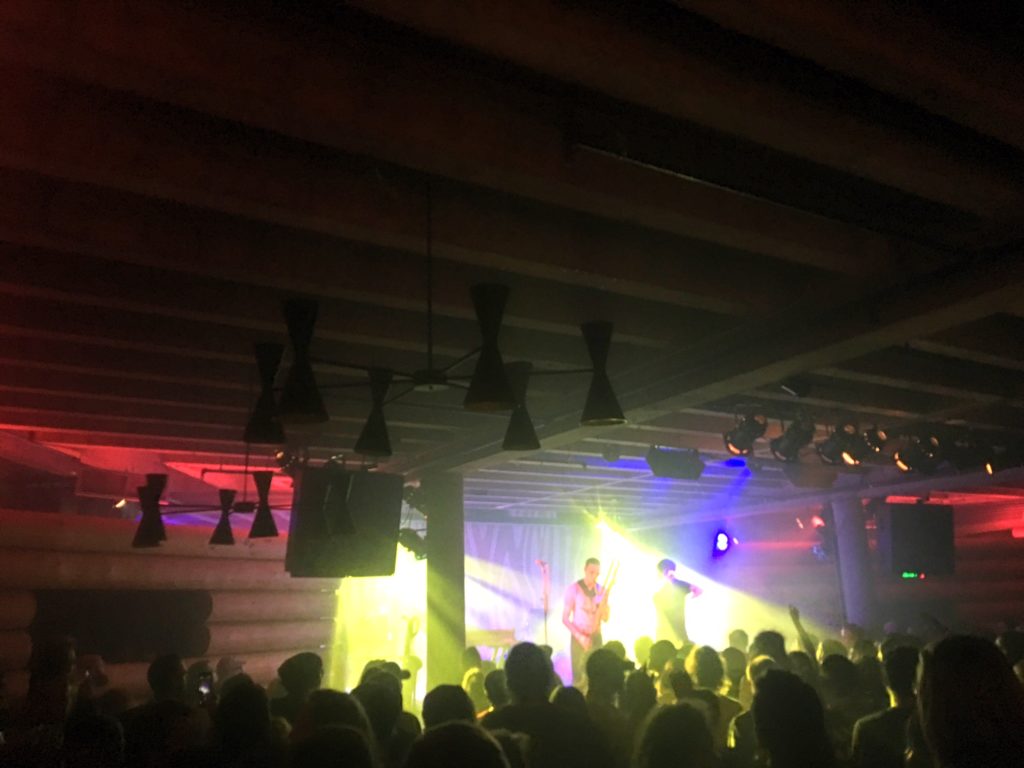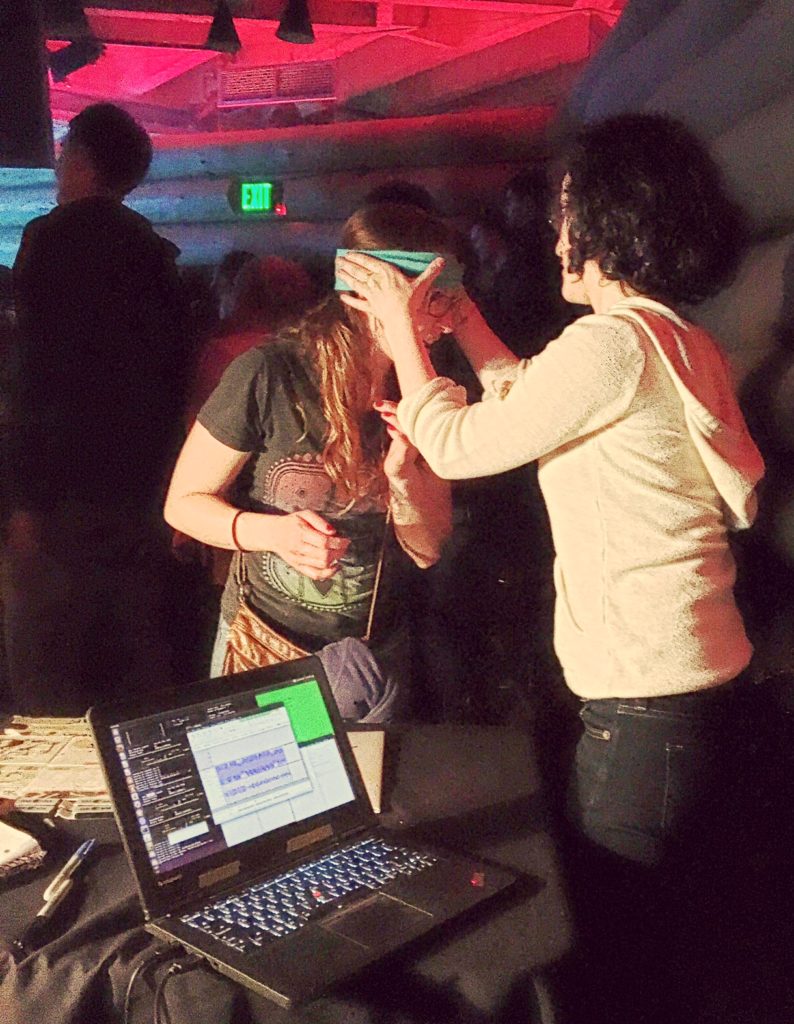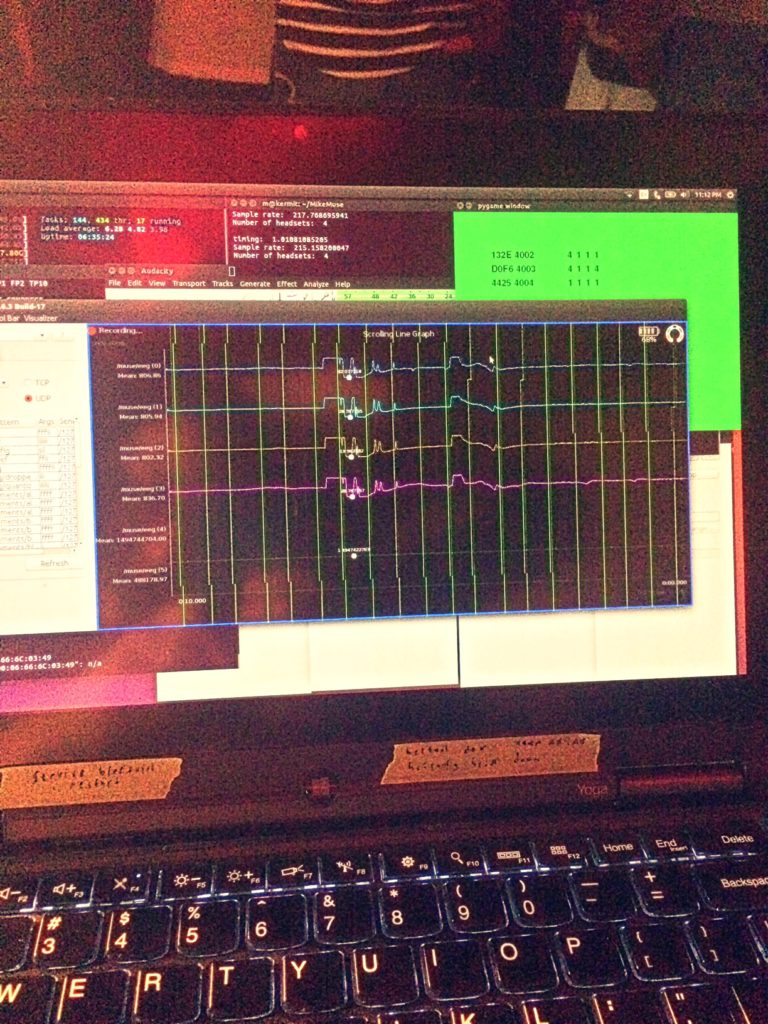Post written by graduate Noggin volunteer Brittany Alperin
“Music can minister to the minds diseased, pluck from the memory a rooted sorry, raze out the written troubles of the brain, and with its sweet oblivious antidote, cleanse the full bosom of all perilous stuff that weighs upon the heart.”
–William Shakespeare
Shakespeare said it well – music makes people feel good, and there’s an increasing body of research literature that supports this (click on a far less literary link below for more details…)
LEARN MORE: Music and emotions: from enchantment to entrainment
One important thing to note is that most studies investigating the effects of music on the brain are done in the lab. This is in contrast to studying how music affects the brain live at a concert. Listening to your favorite music in a room by yourself feels very different from listening to your favorite music live, surrounded by others.
Wenzl McGowen of the band Moon Hooch noticed this and contacted NW Noggin to take a look at the brains of real audience members during one of their shows in Portland. Paired with myself, and roboticist Michael Soroka, we used mobile MUSE EEG headsets to contribute first to some classroom exploration in Portland Public Schools, and then to a live performance, recording the brainwaves of five audience members during the Moon Hooch show at the Doug Fir Lounge on May 13th.
LEARN MORE: Depolarization @ the Doug Fir
Before the show, participants were asked about their current positive and negative emotions, and were also asked about their general feelings of social connectedness. After the show, they were again asked about their current positive and negative emotions along with how connected to the people around them they felt.
All of this information, including questionnaires and brainwave details, are currently in the analysis phase of this performance project. What will we find? Might we see changes in the brain during the show that reflect positive emotions? Will we see an increase in neural synchronization across participants? Is this related to an increase in feelings of social connectedness?
Stay tuned!
If these Shakespearean connections between music and the mind interest you, check out some of the relevant research links below…
LEARN MORE: Exploring the effect of sound and music on health in hospital settings
LEARN MORE: Music used as anti-anxiety intervention for patients during outpatient procedures
LEARN MORE: Music therapy for depression
LEARN MORE: Neural basis of music perception
LEARN MORE: Unraveling the mystery of music: music as an evolved group process
LEARN MORE: Rhythmic entrainment as a musical affect induction mechanism






